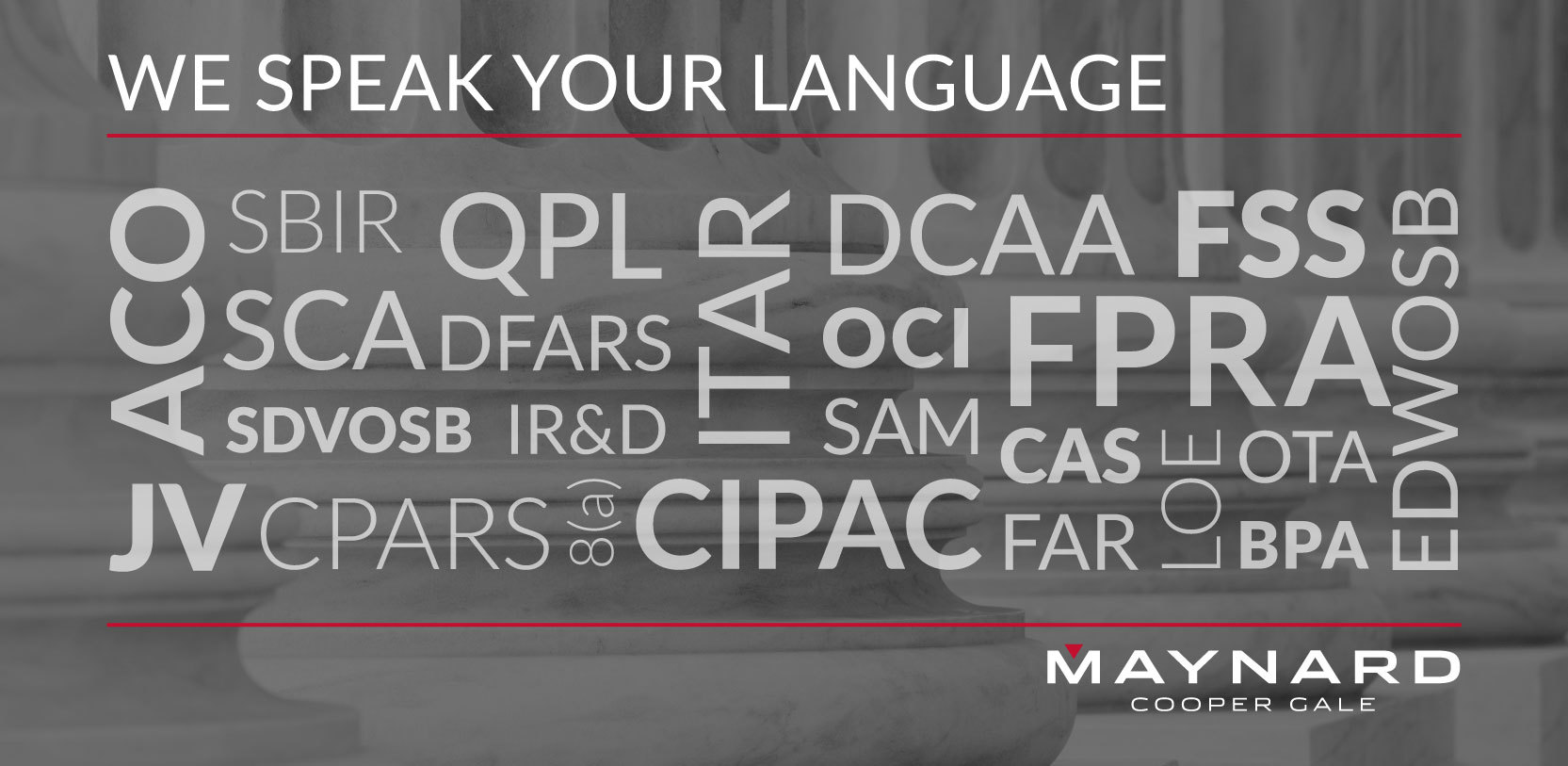Blog

Most companies pursuing government contracts enter into teaming agreements to prepare and submit their proposals. Teaming agreements are an important element of the government contracting proposal process, used to enhance the likelihood of the teaming partners winning a contract by combining complementary capabilities to offer a more comprehensive and competitive solution. Typically, a teaming agreement will describe the anticipated contribution for each team member in performing the prime contract and designate one of the parties as the “prime” and the other as a “subcontractor.”
While courts have generally concluded that the “pre-award” provisions in teaming agreements, such as exclusivity and confidentiality are enforceable, what happens when the parties can’t agree on the terms of a subcontract post-award?
As with all contract disputes, each case revolves around the specific language in the agreement, and the law varies by state, however, generally, most teaming agreements specify that the parties will submit a proposal together and agree to enter into good faith negotiations toward the award of a subcontract upon award of a contract to the prime contractor. The weight of the case law indicates that a promise to conduct good faith negotiations is insufficient to create a binding contract. Further, the terms of a teaming agreement must be very specific to create a post-award obligation in most states.
The Supreme Court of Virginia addressed teaming agreement enforceability in W.J. Schafer Associates, Inc. v. Cordant, Inc., Va. Record No. 961945, (Va S. Ct. 1997). Cordant, faced with either defaulting on the prime contract or re-procuring the items intended to be provided by the subcontractor per the teaming agreement, for a considerably higher price, sued their team member for breach of contract when they failed to reach agreement on a definitive subcontract upon award of the prime contract. The teaming agreement specified that the parties would “negotiate in good faith in a timely manner a Subcontract Agreement.” The Supreme Court of Virginia found that Cordant did not have a claim for breach when the parties failed to agree to a definitive subcontract, stating, “…there must be mutual assent of the contracting parties to terms reasonably certain under the circumstances in order to have an enforceable contract. Here, there was no such mutual commitment. No sum was specified in the agreement, nor was any method or formula alleged for determining the amount payable in settlement. A court should not determine the terms of the settlement upon which the parties might ultimately agree. As the agreement provided no reasonable basis for affording a remedy for its breach, it is too vague and indefinite to be enforced.”
More recently, in CGI Fed. Inc., v. FCi Fed, Inc., Record No. 170617 (Va. S. Ct. 2018), the Virginia Supreme Court addressed a teaming agreement that specified the proposed subcontractor would receive a 41% workshare. Without the subcontractor’s knowledge, the prime contractor submitted a revised proposal proposing 18% workshare for the proposed subcontractor. After the government awarded the contract to the prime contractor, the parties entered into subcontract negotiations during which the prime contractor refused to offer a workshare greater than 22%. The Virginia Supreme Court held the formation of a subcontract was conditioned on the success of future negotiations and therefore did not create an enforceable agreement despite the defined workshare.
Conversely, the U.S. Court of Appeals for the Third Circuit, applying Pennsylvania law, held a prime contractor in breach of contract when it subcontracted with a different supplier in contravention to an exclusive teaming agreement, finding that the mutual promises of the teaming agreement, including the agreement to work together exclusively in the preparation of a proposal, were sufficient for contract formation. “…The ‘teaming arrangement’ between defendant and plaintiffs constituted an enforceable contract with sufficiently definite terms for enforcement, notwithstanding the absence of a final executed document evincing the parties' agreement.” ATACS Corp. v. Trans World Comm’n, Inc., 155 F.3d 659, 663 (3rd Cir. 1998).
Since teaming often occurs very early in the acquisition process, when the requirements may still be largely undefined, prime contractors are concerned with maintaining enough flexibility to adjust their strategy as the solicitation requirements solidify. Similarly, prime contractors are solely responsible for performance risk upon award. However, subcontractors also may be required to make significant investment along with the prime in pursuit of the contract and often agree to exclusivity provisions preventing the subcontractor from participating with other teams to compete for the requirement, so they need to ensure their interests are protected. To balance these needs, a middle of the road approach is needed that includes provisions that are specific enough to be enforceable, but allows the prime contractor room to maneuver in the submission of a winning proposal and any subsequent negotiations with the customer.
The bottom line is teaming agreements must be carefully drafted and choice of law concerns are paramount regarding enforceability.
-----Please reach out to a member of Maynard's Government Solutions Group if you have any questions or need assistance.
- Attorneys
Brad is a trial lawyer in our Government Solutions Group specializing in Government Contracts & Bid Protests. His national government contract litigation practice takes him to state and federal courts across the county. Brad has ...
- Attorneys
Robert is a seasoned litigator with over 20 years of high-level experience representing individuals and businesses in a broad variety of civil litigation matters in state and federal courts and arbitrations. In addition to his ...
- Attorneys
Matt’s national practice and unique talent stack encompass a broad skill set in the laws affecting the workplace, including labor and union relations, employment litigation, employee benefits, trade secrets and restrictive ...
- Attorneys
Andy leads Maynard Nexsen's Government Solutions Group. His experiences in transactional, financial, and regulatory matters include:
- General Counsel Services – Legal and strategic business advice including Strategic ...
- Attorneys
Emily represents government contractors and other businesses in litigation against the United States and other contractors. She also defends contractors against claims and suits by former employees, teaming partners, and ...





